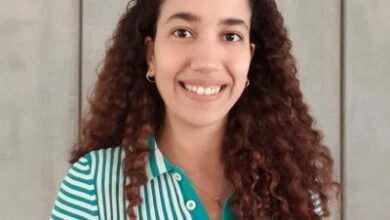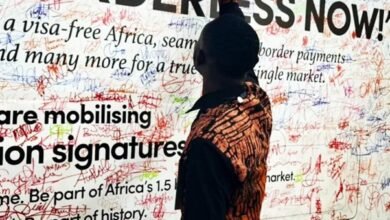Research and Innovation in Africa : a driver for development and equitable partnerships
The IRD* took an active part in the conference entitled "Research and innovation in Africa: a driver for development and partnerships", organised in Brussels on 13 September at the Permanent Representation of France to the European Union.
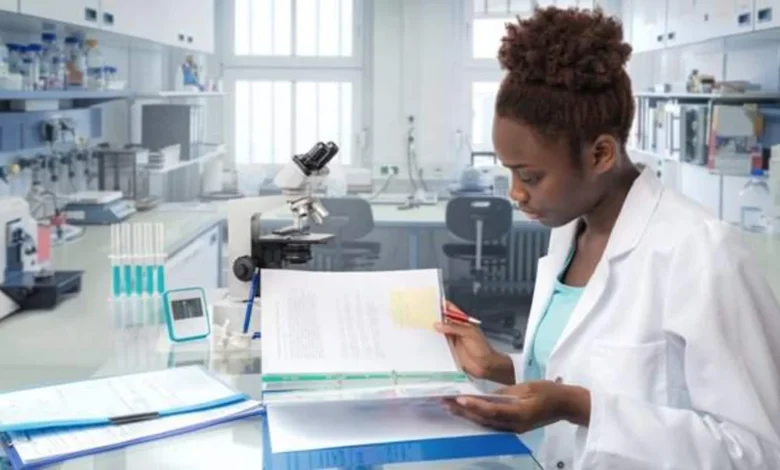
At the European Union (EU)-African Union (AU) Summit in February 2022, the European and African Heads of State and Government confirmed that research and innovation (R&I) is a key priority to support a renewed partnership. In particular, they committed themselves to strengthening support for scientific cooperation and the sharing of technology and expertise, and adopted a roadmap dedicated to R&I to promote scientific partnerships between the EU and Africa. Following on from this summit, the conference on 13 September 2023 aimed to highlight the role of R&I as a lever for development and as a means of building equitable and sustainable partnerships with African countries.
The discussions highlighted:
- the specificities and needs of the R&I actors from both Africa and Europe;
- what is currently offered to them through several initiatives and programmes funded by the European Commission and EU Member States;
- and key recommendations on what needs to be improved or changed in order to achieve the societal transformation called by in the AU 2063 Agenda.
The role of research and innovation partnerships for development
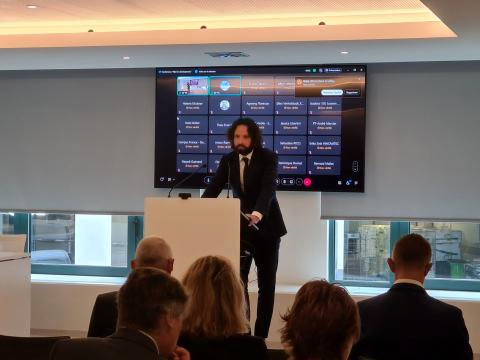
In his opening speech, Cyril Piquemal, Deputy Permanent Representative of France to the EU, stressed that « scientific research is key for development processes ». R&I cooperation is a must to address global challenges effectively, ranging from economic recovery, climate change, rapid population growth, inequality, to infectious diseases, as pointed out by Hans Stausboll, Director of Relations with Africa in the European Commission’s Directorate-General for International Partnerships (DG INTPA). » Strong scientific partnerships can act as catalysts for successfully tackling these challenges », he stressed.
For that purpose, « we need to adopt an approach that meets the needs of the countries concerned », said Patrick Nédellec, Delegate for European and International Affairs at the French Ministry of Higher Education and Research. « This goes hand in hand with the paradigm shift that is under way, from a development approach to a truly balanced partnership approach », he added.
European commitments to scientific partnerships for development
At the end of 2021, the European Commission launched the Global Gateway strategy aimed at developing partnerships and supporting long-term, sustainable projects in partner countries in the European neighbourhood, Africa, Latin America and the Caribbean, and Asia. Between 2021 and 2027, the EU, through a Team Europe approach, plans to mobilise up to €300 billion in investment for infrastructure and development projects in the fields of digital technology, climate and energy, transport, health, education and research.
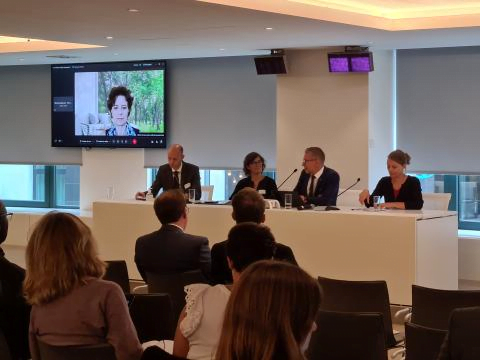
« We won’t be able to solve the problem of climate change, or protect the environment, if we don’t have strong cooperation in research and innovation. This is precisely why research and innovation are an essential pillar of the Global Gateway strategy », said Carla Montesi, Director in charge of the Green Deal and the Digital Agenda at DG INTPA.
The implementation of this strategy is based on regional partnerships, in particular with Africa through the Global Gateway Africa-Europe Investment Package, which was announced in 2022 at the EU-AU summit and aims to mobilise at least €150 billion in investment by 2027, representing around 50% of the amount that Global Gateway aims to mobilise.
The EU-AU Summit in February 2022 also launched the development of the AU-EU Innovation Agenda, which was finally adopted in July 2023 and aims to transform and increase the innovation capacities and achievements of European and African researchers and innovators into tangible results. Supported by the Global Gateway strategy, it should be the pillar of cooperation in science, technology and innovation between Africa and Europe for the next decade.
Nienke Buisman, Head of Unit for International Cooperation at the Directorate-General for Research and Innovation (DG RTD), also highlighted the « global approach to R&I », the European strategy for international cooperation in R&I. « The global approach is not just a strategy, but also defines a number of actions, and cooperation with Africa is seen as a priority », she explained, taking the example of the launch of the Africa Initiative as part of the Horizon Europe programme to stimulate cooperation between European and African researchers.
ARISE : the success of a programme to be continued and developed
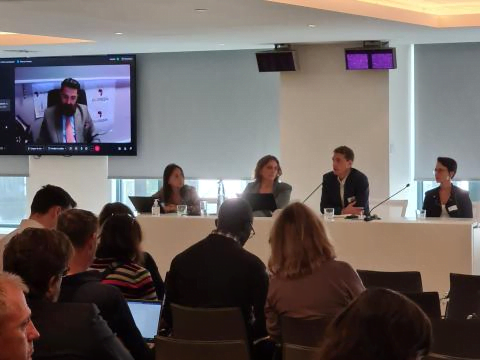
Several R&I instruments and programmes were discussed, especially in the third round table facilitated by Olivier Dangles, Deputy Science Director in charge of sustainability science at the IRD. The speakers particularly highlighted the success of the African Research Initiative for Scientific Excellence (ARISE) pilot programme for the promotion of scientific excellence in Africa, to which the IRD made a significant contribution during its design phase.
Piloted by the African Academy of Sciences (AAS) and funded by the EU, ARISE is an excellent instrument for creating professional opportunities for African researchers, while tackling the problem of the African brain drain. The IRD, alongside its African partners and European institutions and networks such as The Guild, is therefore advocating not only the continuation of this programme beyond the pilot phase, but also its extension to mid-career and established researchers.
Towards the European Research Alliance for Sustainable Development in the Global South
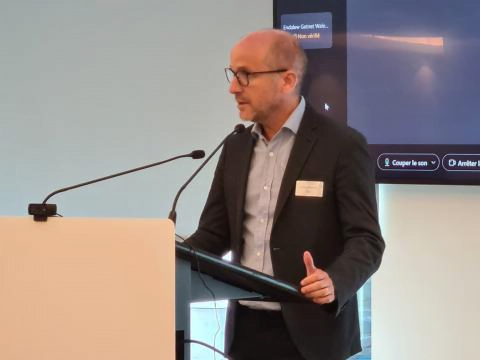
Strengthening collaboration and coordination at the EU level, in line with the Team Europe approach underpinning the Global Gateway strategy, is necessary to have a greater impact on the societal transformation underway. Based on the Marseille Declaration on International Cooperation in R&I and the 2030 Agenda for Sustainable Development, the IRD is leading discussions with European research institutions and networks working on the Sustainable Development Goals (SDGs) with partners in the Global South, on a project for the creation of a European Research Alliance for Sustainable Development in the Global South. Such an alliance seems « critical if we want to better link Horizon Europe research outputs with development policies and programmes supported by NDICI – Global Europe instrument, in other words to put Science at the heart of the Development Agenda », argued Gilles Pecassou, Deputy Director General of the IRD, at the end of the event.
Gilles Pecassou also stressed the importance of adopting shared values that should shape not only the activities of this alliance, but also its contributions to the future of the European Research Area (ERA) and its links with third countries, particularly its partners in the Global South. « In addition to the principle of developing equitable scientific partnerships, we believe that the values underpinning the Marseille Declaration such as ethics and integrity, open science, research excellence, gender equality as well as social and environmental responsibility must be an integral part of each of the Alliance’s future achievements, » he said.
The IRD’s Deputy Director General concluded by thanking the European research institutions with which the Institute has begun a dialogue on this initiative, as well as the Commission for its interest and support.
For more information : https://en.ird.fr/r
*A French public research institution, IRD supports an original model of equitable scientific partnership and interdisciplinary, citizen, sustainability science committed to the achievement of the Sustainable Development Goals.





